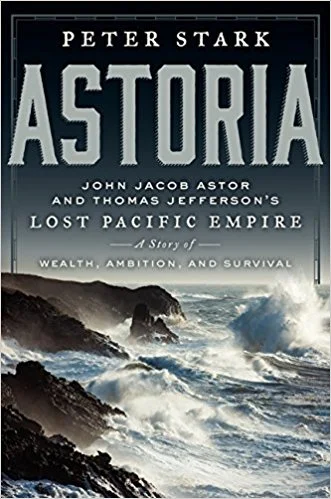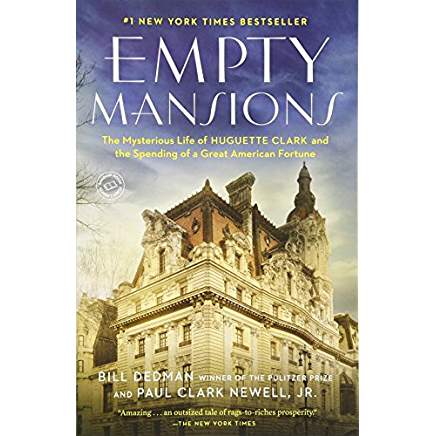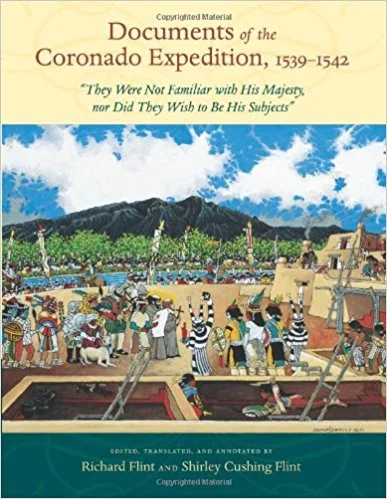Astoria
Astoria: John Jacob Astor and Thomas Jefferson's Lost Pacific Empire: A Story of Wealth, Ambition and Survival by Peter Stark
Who hasn't heard of New York's Waldorf Astoria Hotel? But who remembers that John Jacob Astor, born in Waldorf, Germany, and source of the fortune that built the eponymous hotel, was the richest man in America in the early 19th Century? This book chronicles his rise from New York butcher, violin seller and fur buyer to presumptive Lord of the Northwestern Coast of North America, in cahoots with the likes of Thomas Jefferson and in competition with Canada's powerful Northwest Company. Astor sent simultaneous Pacific Fur Company land and sea expeditions to Oregon in 1810-1812 to establish a post (and the first American settlement) at the mouth of the Columbia River. They had the dual purpose of harvesting the rich bounty of furs (beaver and sea otter) there, and establishing some sort of American claim to a region hotly contested with the British. The most compelling parts of the book relate the progress and fate of each expedition. Wilson Price Hunt's overland party was the first to cross what is now the U.S. after Lewis and Clark. It reached the mouth of Columbia at a high cost of lives and sanity due to poor timing and forced winter marches though largely unknown country. A party of the overlanders discovered South Pass, through the Rockies in what is today Wyoming, on their return trip, which was subsequently used by most settlers en route to the Northwest. The seaborne expedition, on the ship Tonquin, captained by U.S. Navy hero Jonathan Thorn, had its own misadventures en route to founding Astoria, many due to the tyrannical Captain's conflicts with passengers and crew, and was ultimately blown up, with most hands dead, as a result of a conflict with natives during a trading expedition on Vancouver Island. The War of 1812 ultimately cut Astoria's life as an American outpost short, and it was delivered to the British by its leaders, many of whom were former Northwest Company employees and still British subjects anyway. Notwithstanding this, the fact of its American founding ultimately helped establish U.S. claims to the region. Stark successfully uses the stories of the two expeditions to contrast the virtues and vices of the leadership styles exemplified by Hunt and Thorn, to wit: Hunt's consensus-based style vs Thorn's military "command-and-control" style. It must be said that each has its place and, frankly, a judicious mix of both on the part of each of the principal protagonists, depending upon the circumstances, might have resulted in less loss of life and limb. However, it was ultimately global geopolitics, not local leadership style, that determined Astoria's fate.


